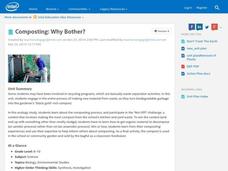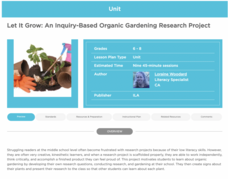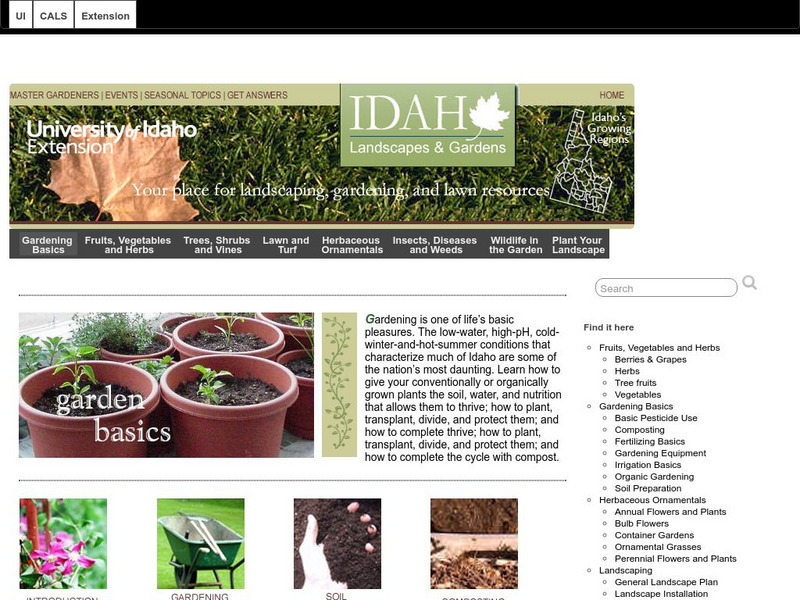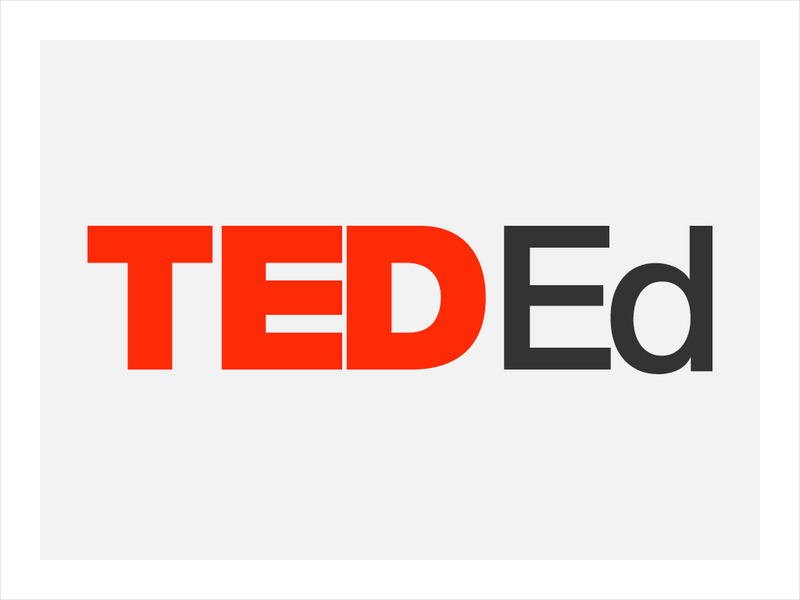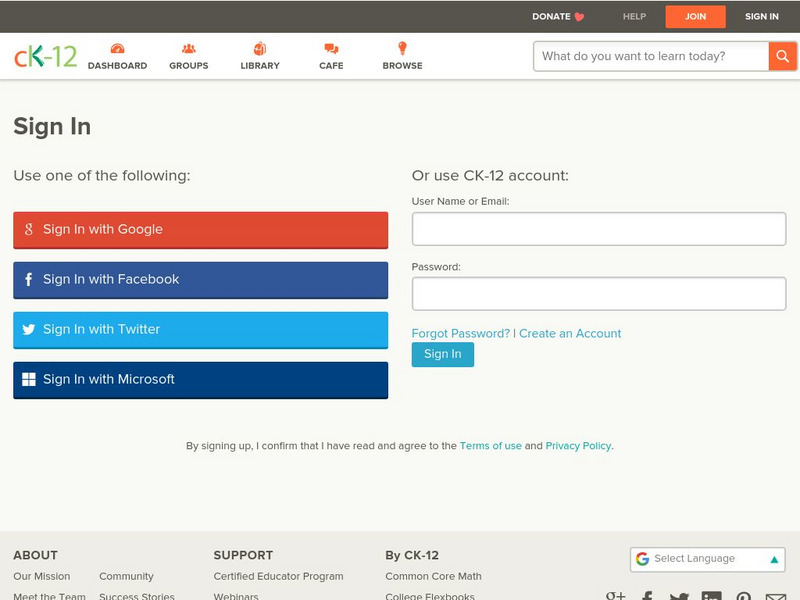Intel
Composting: Why Bother?
The first STEM lesson in a group of 10 explores composting. After discussing how to make a better tomorrow, classes are challenged to track garbage in their communities, visit a local waste management facility, and conduct a survey...
Cal Recycle
Conserving Natural Resources
Trying to plan an engaging elementary science unit on natural resources? Conserve your energy! This five-part series of lessons and hands-on activities has exactly what you need to teach young scholars about the importance of conservation.
Core Knowledge Foundation
Taking Care of the Earth Tell It Again!™ Read-Aloud Anthology
A read-aloud anthology closely examines human impact on the Earth while boosting reading comprehension skills. Through stories, scholars examine the concepts of natural resources, pollution, garbage, and recycling and brainstorm...
Texas Commission on Environmental Quality
Environmental Sciences
Whether you are teaching environmental science in junior high or studying recycling in kindergarten, there is something for all in this set of lessons designed for environmental education. The 110-page packet comes with tips for...
Purdue University
Food Waste Solutions
Easy doesn't always mean better. In an era with pre-packaged everything, learners consider the environmental impact of the convenient trend. They critique the packaging of food and how waste impacts cost and then look for solutions.
ReadWriteThink
Let It Grow: An Inquiry-Based Organic Gardening Research Project
How does your garden grow? An inquiry-based, organic gardening unit asks young scientists to research a vegetable or flower, create an environment for it, and then plant and tend to the seedling. Gardeners develop their own research...
Other
University of Idaho Extension: Idaho Landscapes & Gardens: Garden Basics
A gardening resource which addresses basic gardening tips, and also contains information on composting, preparing soil, irrigating, and using pesticides and fertilizers.
TED Talks
Ted: Ted Ed: Vermicomposting: How Worms Can Reduce Our Waste
Nearly one third of our food ends up in the trash can. Matthew Ross details the steps we can all take to vermicompost at home, and why it makes good business sense to do so. [4:29]
TeachEngineering
Teach Engineering: Environment
Through 10 lessons and more than 20 hands-on activities, students are introduced to the concept of an environment and the many interactions within it. As they learn about natural and human-made environments, as well as renewable and...
PBS
Pbs: The Lowdown: The Math of Trash: Percents and Proportions
Discover how percents and proportions help explain issues like climate change, composting, and zero waste in this video from KQED. In the accompanying classroom activity, students estimate the percentage of various types of trash that...
University of Illinois
University of Illinois Extension: The Great Plant Escape: Soiled Again
Help Detective Le Plant dig for clues in the soil to solve this case. You'll need to find out what soil is, why it is important, and in what kinds of soil plants grow.
CK-12 Foundation
Ck 12: Biology: Anaerobic vs Aerobic Respiration
[Free Registration/Login may be required to access all resource tools.] Describes aerobic or anaerobic respiration.
Other popular searches
- Worm Composting
- Composting Third Grade
- Trash & Recycling Composting
- Importance of Composting
- 2 Liter Bottle Composting
- Composting Temperature
- Science of Composting
- Classroom Composting
- Worms and Composting
- Lesson Plans on Composting
- Composting Tag
- Composting Box
